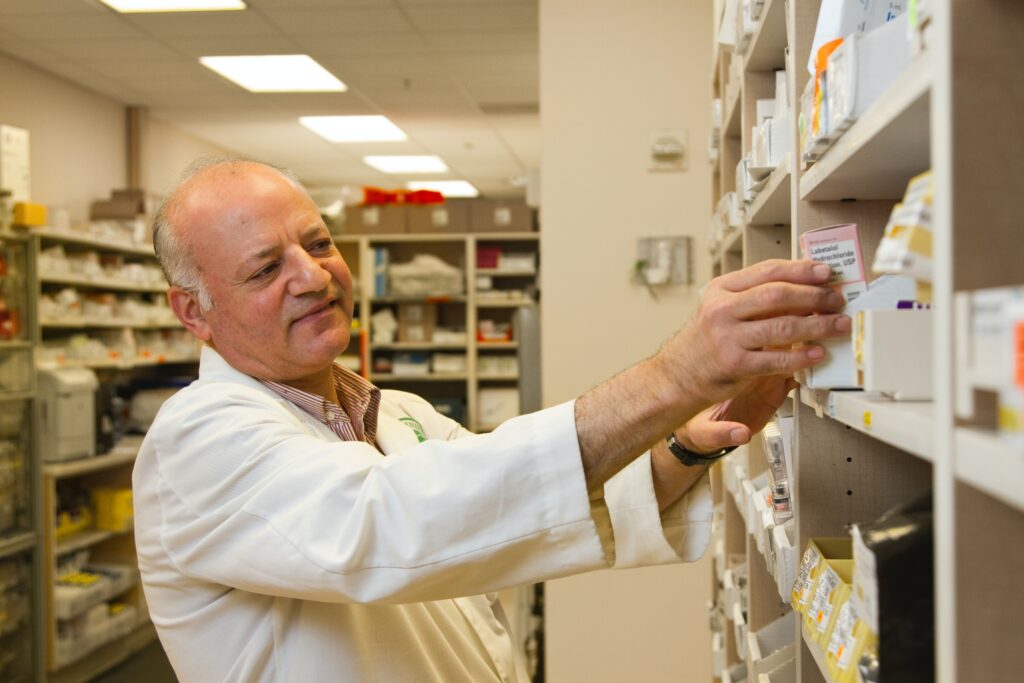In the world of medicine, where we spend a fortune looking for new and better ways to tackle diseases, could it be there’s a cool trick up our sleeves? It turns out that many researchers are taking everyday drugs you’ve probably heard of, like aspirin and some worming medicines, and finding new ways they can help fight cancer. And the results are fascinating.
Today we’re exploring this idea with particular regard to aspirin and anti-worming medicines such as Fenbendazole (or its close relative mebendazole) as they relate to cancer.
Drug Repurposing: Old Drugs with A New Purpose
Repurposing drugs, also referred to as drug repositioning or reprofiling, involves using FDA-approved medicines for one medical condition to examine their potential in treating another medical condition. This approach has become popular as it offers several advantages such as reduced development costs and faster time to clinical use.
Repurposing existing medications has a rich and fascinating history dating back centuries, from clinical trials and rigorous scientific methods to innovative use cases discovered through patient testing. Even today, we continue to discover new uses for old drugs as part of medical practice. Here we explore some key milestones in its long history as it relates to two particular pharmaceuticals.
Aspirin: From Pain Relief to Potential Cancer Treatment
Aspirin, a household name for pain relief and fever reduction, has a long history of medicinal use. However, its potential in cancer treatment is a relatively recent discovery.
- Origins: Aspirin was initially licensed as a painkiller but is now predominantly used as a blood thinner. However, ongoing clinical trials are exploring its role in cancer therapy.
- Mechanism: Researchers believe that aspirin’s anti-inflammatory and antiplatelet effects might also inhibit the growth of cancer cells and reduce the risk of metastasis.
- Challenges: The main challenge in repurposing aspirin lies in determining the optimal dosage and treatment duration for different cancer types. Researchers are working to establish clear guidelines for its use in oncology.
Aspirin’s Role in Cancer Prevention
One of the most thoroughly investigated areas pertaining to aspirin use is its effect on colorectal cancer. While studies have suggested regular aspirin use is associated with decreased risks of colorectal cancer development in particular, its exact mechanisms are still under review. But many researchers agree that aspirin may play an essential role in inhibiting precancerous cell proliferation while decreasing inflammation within the colon.
- Other Cancers: Beyond colorectal cancer, studies have explored aspirin’s potential in preventing various other cancers, including breast, prostate, and lung cancer. While the results have been mixed and more research is needed, some findings suggest that aspirin may offer protective benefits in these contexts as well.
- Metastasis Prevention: Aspirin’s potential in preventing cancer metastasis (the spread of cancer to other parts of the body) has garnered attention. Some studies suggest that aspirin might inhibit the adhesion of cancer cells to blood vessel walls, potentially reducing their ability to spread.
- Adjuvant Therapy: In certain cases, aspirin is being explored as an adjuvant therapy alongside standard cancer treatments like chemotherapy. It’s believed that aspirin’s anti-inflammatory effects may enhance the effectiveness of these treatments and potentially reduce the risk of cancer recurrence.
Aspirin’s Challenges and Considerations
While the potential of aspirin in cancer prevention and treatment is exciting, it’s important to acknowledge some challenges and considerations:
- Dosing and Duration: Determining the optimal dosage and duration of aspirin therapy for cancer prevention and treatment remains a subject of ongoing research.
- Risks and Side Effects: Aspirin is not without risks, particularly in terms of gastrointestinal bleeding. Therefore, the decision to use aspirin for cancer prevention or treatment should be made in consultation with a healthcare provider, weighing potential benefits against risks.
- Patient Variability: Individual responses to aspirin may vary, and not all patients may benefit equally from its use.
Aspirin’s journey from pain reliever to potential cancer fighter is an example of the complexity and diversity of drug repurposing. While substantial progress has been made, more research needs to be conducted in order to establish its role in cancer prevention and treatment as well as develop clear guidelines on its usage in healthcare settings worldwide.
Anti-Parasitic Medications and Their Role in Fighting Cancer
You might be amazed to learn that medications used to combat intestinal parasites, both human and animal alike, have recently been investigated as possible cancer treatments; specifically Fenbendazole and Mebendazole which are making significant inroads into fighting cancer. Let’s take a closer look at their efforts against cancer.
Fenbendazole and Mebendazole: Promising Candidates
Anti-worming medicines like Fenbendazole and mebendazole have entered the spotlight as potential cancer-fighting agents. What are they and what role do they play in fighting cancer? Fenbendazole and Mebendazole anti-worming medications offer an exciting avenue of exploration when it comes to treating cancer. While research remains in progress and with clinical data still emerging, these medicines present us with an opportunity for drug repurposing. As we uncover their mechanisms of action and conduct more comprehensive trials, we may gain valuable insights into their potential role in improving cancer treatments options.
- Origins: These drugs were originally designed to treat intestinal parasites in animals and humans. Their potential anti-cancer properties have sparked interest in recent years.
- Mechanism: Researchers speculate that these medicines might disrupt cancer cell division or interfere with their metabolic processes.
- Clinical Trials: Early-stage clinical trials are underway to evaluate the safety and efficacy of Fenbendazole and mebendazole in cancer treatment. These trials are essential to determine their true potential.
Challenges and Opportunities
While drug repurposing offers promise, several challenges must be overcome:
- Patent Issues: Many existing drugs are no longer under patent protection, making pharmaceutical companies less incentivized to invest in costly clinical trials for new indications.
- Medical Hesitancy: Doctors are often reluctant to prescribe drugs for conditions they weren’t initially designed for, as they bear responsibility for potential side effects.
- Clinical Evidence: It’s crucial to rely on robust clinical evidence before widespread adoption of repurposed drugs in cancer treatment. This necessitates well-designed trials and rigorous research.
Bottom Line
Repurposing existing drugs to treat cancer is a tantalizing prospect. The discovery of faster, more cost-effective treatments that could ultimately save lives, should be of interest to all of us. While challenges remain, their promise lies within unlocking this unknown potential within existing medications we already possess and changing policy accordingly may unlock their full potential in fighting cancer.
Fenbendazole and Mebendazole anti-worming medications offer an exciting avenue of exploration when it comes to treating cancer. While research remains in progress and clinical data still emerging, these medicines present us with an opportunity for drug repurposing. As we uncover their mechanisms of action and conduct more comprehensive trials, we may gain valuable insights into their potential role in improving cancer treatments options.
Success Stories
If you’re interested in learning first-hand from someone who has “been there, done that” and used one of these repurposed drugs to beat late-stage cancer, then check out these video interviews with Joe Tippens, stage 4 lung cancer survivor. The initial video interview we did with Joe was so noteworthy, that it went soon went viral. We followed up with his success story in two subsequent video interviews, linked below.
How Joe Tippens Beat Terminal Cancer with $7 Dog Medicine:
Part 1: https://vimeo.com/916801787?share=copy
Part 2: https://vimeo.com/916805541?share=copy
Part 3: https://vimeo.com/917320698?share=copy
Another video you may want to check out is by Melanie Kennedy, mother of two young boys was diagnosed with breast cancer in 2013, and which soon spread to her liver. She used a combination of four repurposed drugs in her personal battle against cancer. Find our about her story here: https://youtu.be/2-YrZMIK37U?feature=shared
And check out these related articles:
- Dr. Padman Vamadevan, scientist and oncology consultant at COC, and his 4-drug cocktail
- Dirt Cheap Drugs Outperform Trumpeted New Treatments
- Could £400-per-year drug cocktail be the key to beating one of the most-deadly cancers? Henry was given 14 months to live now his cancer is stable thanks to his four everyday medicines.

Resources:
Pantziarka P, Bouche G, Meheus L, Sukhatme V, Sukhatme VP. Repurposing Drugs in Oncology (ReDO)-mebendazole as an anti-cancer agent. Ecancermedicalscience. 2014 Jul 10;8:443. doi: 10.3332/ecancer.2014.443. PMID: 25075217; PMCID: PMC4096024.
Rothwell PM, Wilson M, Elwin CE, Norrving B, Algra A, Warlow CP, Meade TW. Long-term effect of aspirin on colorectal cancer incidence and mortality: 20-year follow-up of five randomised trials. Lancet. 2010 Nov 20;376(9754):1741-50. doi: 10.1016/S0140-6736(10)61543-7. Epub 2010 Oct 21. PMID: 20970847.
Algra AM, Rothwell PM. Effects of regular aspirin on long-term cancer incidence and metastasis: a systematic comparison of evidence from observational studies versus randomised trials. Lancet Oncol. 2012 May;13(5):518-27. doi: 10.1016/S1470-2045(12)70112-2. Epub 2012 Mar 21. PMID: 22440112.
De Matteis R, Flak MB, Gonzalez-Nunez M, Austin-Williams S, Palmas F, Colas RA, Dalli J. Aspirin activates resolution pathways to reprogram T cell and macrophage responses in colitis-associated colorectal cancer. Sci Adv. 2022 Feb 4;8(5):eabl5420. doi: 10.1126/sciadv.abl5420. Epub 2022 Feb 2. PMID: 35108049; PMCID: PMC8809687.
Drew DA, Cao Y, Chan AT. Aspirin and colorectal cancer: the promise of precision chemoprevention. Nat Rev Cancer. 2016 Mar;16(3):173-86. doi: 10.1038/nrc.2016.4. Epub 2016 Feb 12. PMID: 26868177; PMCID: PMC6741347.
Jacobs EJ, Thun MJ, Bain EB, Rodriguez C, Henley SJ, Calle EE. A large cohort study of long-term daily use of adult-strength aspirin and cancer incidence. J Natl Cancer Inst. 2007 Apr 18;99(8):608-15. doi: 10.1093/jnci/djk132. PMID: 17440162.
Issa NT, Stathias V, Schürer S, Dakshanamurthy S. Machine and deep learning approaches for cancer drug repurposing. Semin Cancer Biol. 2021 Jan;68:132-142. doi: 10.1016/j.semcancer.2019.12.011. Epub 2020 Jan 3. PMID: 31904426; PMCID: PMC7723306.
Markowska A, Kaysiewicz J, Markowska J, Huczyński A. Doxycycline, salinomycin, monensin and ivermectin repositioned as cancer drugs. Bioorg Med Chem Lett. 2019 Jul 1;29(13):1549-1554. doi: 10.1016/j.bmcl.2019.04.045. Epub 2019 Apr 27. PMID: 31054863.
Dogra N, Kumar A, Mukhopadhyay T. Fenbendazole acts as a moderate microtubule destabilizing agent and causes cancer cell death by modulating multiple cellular pathways. Sci Rep. 2018 Aug 9;8(1):11926. doi: 10.1038/s41598-018-30158-6. PMID: 30093705; PMCID: PMC6085345.
Elayapillai S, Ramraj S, Benbrook DM, Bieniasz M, Wang L, Pathuri G, Isingizwe ZR, Kennedy AL, Zhao YD, Lightfoot S, Hunsucker LA, Gunderson CC. Potential and mechanism of mebendazole for treatment and maintenance of ovarian cancer. Gynecol Oncol. 2021 Jan;160(1):302-311. doi: 10.1016/j.ygyno.2020.10.010. Epub 2020 Oct 31. PMID: 33131904; PMCID: PMC8820236.
Gao P, Dang CV, Watson J. Unexpected antitumorigenic effect of fenbendazole when combined with supplementary vitamins. J Am Assoc Lab Anim Sci. 2008 Nov;47(6):37-40. PMID: 19049251; PMCID: PMC2687140.
Chen YA, Lin YJ, Lin CL, Lin HJ, Wu HS, Hsu HY, Sun YC, Wu HY, Lai CH, Kao CH. Simvastatin Therapy for Drug Repositioning to Reduce the Risk of Prostate Cancer Mortality in Patients With Hyperlipidemia. Front Pharmacol. 2018 Mar 22;9:225. doi: 10.3389/fphar.2018.00225. PMID: 29623039; PMCID: PMC5874326.

